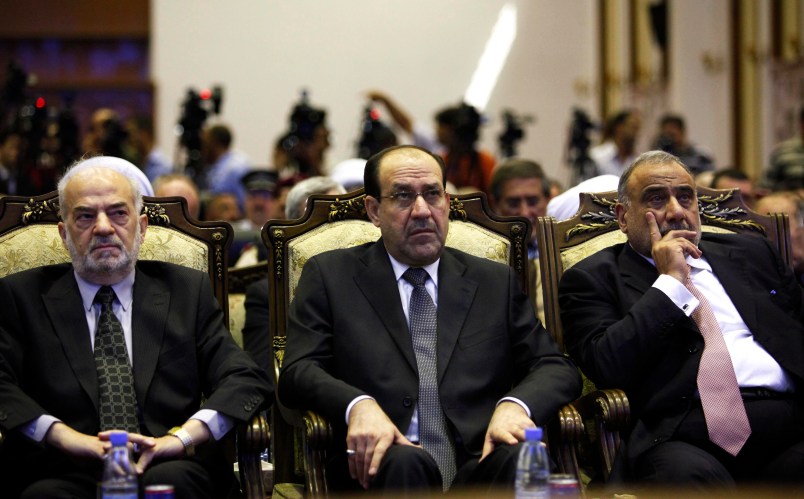BAGHDAD (AP) — Iraq’s parliament convened to vote for a new president on Wednesday as the extremist Islamic State group claimed responsibility for a suicide bombing in Baghdad the night before that killed 31 people, mainly civilians.
The bomber had rammed his explosives-packed car into a checkpoint near a revered Shiite shrine in the heart of the capital late Tuesday, as worshippers awaited security checks before visiting the site during the Islamic holy month of Ramadan. Another 58 people were wounded in the attack, which took place in the central Kazimiyah district.
Police officials confirmed the toll, speaking on condition of anonymity because they were not authorized to talk to reporters.
In a statement posted online late Tuesday, the Sunni Islamic State group, which seized vast swaths of northern and western Iraq last month, claimed the attack and said it was “in response to the hostility of the (Shiite-led) government” of Prime Minister Nouri al-Maliki and his “criminal militias, who spare no effort in fighting Islam and Muslims.”
The authenticity of the statement could not be independently verified, but it was posted on a militant website frequently used by the group.
The Sunni militants’ capture of large areas of Iraq last month, including the second largest city Mosul, plunged the country into its worst crisis since U.S. troops withdrew at the end of 2011 and has led to widespread calls for new leadership that can unite the country.
But despite the crisis, lawmakers have struggled to agree on a new government following April elections — in which al-Maliki’s bloc secured the most seats. After several delays, lawmakers elected a moderate Sunni as parliament speaker on July 15, the first step in the process.
The next is to replace President Jalal Talabani, whose term is set to expire. At least 95 candidates are in the running, Shiite lawmaker Adel Shershab told state television on Wednesday. Two names have emerged as front-runners to succeed Talabani — former deputy prime minister Barham Saleh and the Kirkuk provincial governor Najimaldin Karim.
“The parliament is meeting again in order to select the president of the republic in accordance with the constitutional and legal procedures that allow any citizen to run,” al-Maliki said in his weekly address to parliament. “We hope that the parliament will succeed in choosing the president of the republic in accordance with the constitution and the law.”
Talabani, who suffered a stroke in late 2012, returned to the country on Saturday after more than 18 months abroad for medical treatment.
Since 2003, Iraq’s political parties have agreed to assign the position of president to a Kurd, prime minister to a Shiite and speaker of parliament to a Sunni.
The next president will task someone with forming a new government, and whoever can assemble a majority coalition will become the next prime minister.
Al-Maliki has faced widespread calls to step aside by critics who accuse him of monopolizing power and alienating the Kurdish and Sunni minorities. But he has vowed to remain in the post, which he has held since 2006.
___
Associated Press reporter Vivian Salama in Baghdad contributed to this report.






